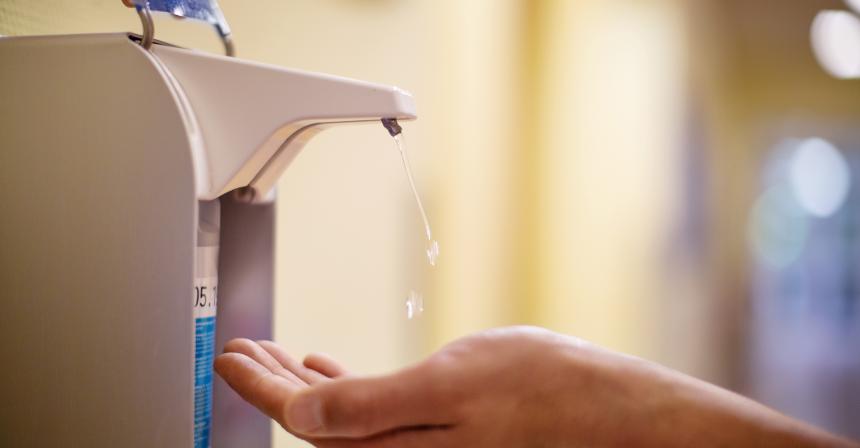6 Tips for Going Out Into Public During the Coronavirus Outbreak

You’re probably supposed to be at home, hunkering down during the coronavirus outbreak. But you have to go out for groceries or take out. How do you protect yourself?
If you’re in a high-risk group, like being 60 years old or older or have chronic conditions like lung disease, heart disease or diabetes, you should avoid going out at all, according to the Centers for Disease Control and Prevention. See if you can get someone to bring you what you need.
But if you still have to go out, here are some tips that can help:
Take advantage of sanitizer dispensers in the store
The best advice for buying groceries right now? If you have to go, touch as little as possible in the store and sanitize everything when you get home. Before you take that buggy or basket, grab a sanitary wipe and clean the parts you’ll touch thoroughly. Most major grocery stores have wipes or hand sanitizer dispensers near where you get the cart. If there aren’t any, be sure to avoid touching your face and clean your hands after you’ve done your shopping.
Skip the Receipt
There’s no evidence that receipts are particularly efficient at transmitting germs, much less COVID-19, but why take the chance if you don’t need the receipt?
Use a credit card instead of cash. This way you don’t have to accept change back. But after you use the machine to enter your code, be sure to wash your hands or use hand sanitizer. This is true for ATM pads and the screens and keypads of movie dispensers.
Order Cooked Food, Not Raw
COVID-19 is a respiratory illness, not a foodborne illness. This means primary transmission is through respiratory droplets when an infected person coughs or sneezes, not ingested food. However, you can still get sick if droplets land on surfaces or food. That’s why it’s important to order cooked food. High temperatures used to cook food kills the virus. Keep in mind, raw food isn’t limited to sushi. It’s also salads, fresh fruits, vegetables, nuts, seeds and sprouted grains.
Coronavirus cases have not been linked to imported foods, so you can continue enjoying your favorite ethnic foods, as long as they’re cooked.
Wash Your Hands Before Touching Packaging and Utensils
Stay safe by washing your hands before and after touching food bags, packages and utensils. And remember to wipe down your countertops with standard cleaning products before and after placing take out or delivery bags on them.
Additional information: Soap works better than sanitizers for killing the coronavirus, according to experts at Simmons University. The virus is encased in fat, which soap can penetrate. Of course, if you’re not near a kitchen or bathroom with soap, use hand sanitizer.
Check Health Inspection Reports of Restaurants
Restaurants should be following government guidelines regarding food safety to ensure the wellbeing of their patrons. If you’re concerned your favorite establishment is not taking these guidelines seriously, check out their health inspection history. Many municipal health departments include this information online.
Limit Contact with Delivery Drivers and Drive-Thru Servers
Food servers and delivery drivers encounter many, many people. So far, there haven’t been any cases related to food servers or delivery drivers, but if you want to reduce your risk of catching the virus from someone who may be carrying the virus but is asymptomatic, limit your contact with them. Have delivery drivers leave orders on porches or front doors. And when possible, request a food server place your order on a surface, then pick it up, as opposed to taking it directly from the server.


